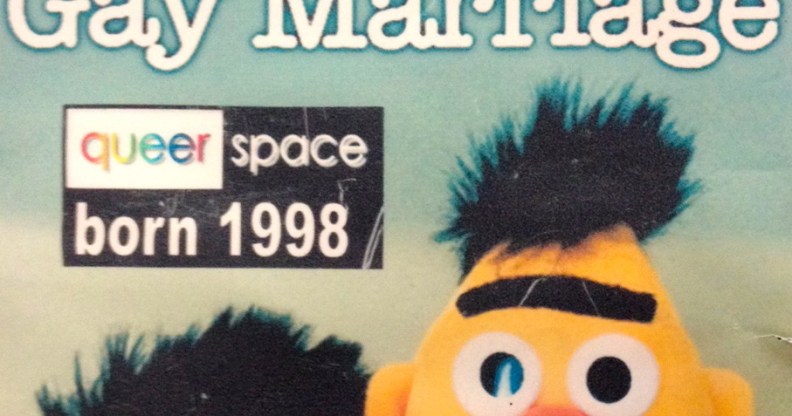The ‘Gay cake’ row is heading to Europe’s highest court

The gay man who sued a bakery for refusing to make a pro-same-sex marriage cake featuring Bert and Bernie from Sesame Street is taking his case to the European Court of Human Rights (ECHR).
Gareth Lee’s lawyers are challenging a previous Supreme Court decision which found that a bakery did not discriminate when it refused to make a cake with the message “support gay marriage.”
Lee, a gay man, was told by Ashers Bakery in Belfast that his request conflicted with the owners’ Evangelical Christian beliefs. He wanted to take the cake to a private event marking International Day Against Homophobia in 2014.
In 2015 a Belfast court ruled that the bakery had discriminated against Lee, but in October 2018 the UK Supreme Court overturned the ruling in an unanimous decision.
The five justices found that the bakery had not refused Lee’s order because of his sexuality, and therefore did not discriminate.
“The bakers’ objection was to the message and not to the man,” President of the Supreme Court Lady Hale said, reading the judgement.
Lawyers say Supreme Court didn’t give LGBT+ rights ‘appropriate weight’
Lee’s lawyers announced on Thursday (August 15) that they are challenging the 2018 decision at Europe’s highest human rights court.
Solicitors at Phoenix Law will argue that the Supreme Court “failed to give appropriate weight to Mr Lee’s rights under the European Convention of Human Rights.”
The case will not implicate the bakery owners or argue against their right to hold private religious and political views. Instead, lawyers will challenge the concept that a business can have religious beliefs.
There is no such thing as a ‘Christian business.’
“Its owners may, but businesses, brands and companies are separate from their owners and their personal and private views,” a statement from Phoenix Law read.
“There is no such thing as a ‘Christian business’ and we contest that no such thing ought to be given legal recognition by a court.”
Gay cake case ‘not about owners’ religious beliefs’
Lee said that the case “has never been about” an individual’s beliefs.
“I’d fight for the rights of business owners to be able to hold their own religious beliefs,” he said.
“I have my own beliefs. But that’s not what my case has ever been about. This is about limited companies being somehow able to pick and choose which customers they will serve. It’s such a dangerous precedent.”

Gareth Lee outside the Supreme Court after the 2018 ruling. (Leon Neal/Getty)
Lee’s solicitor Ciaran Moynagh added: “No legislation is perfect, but in equality law a hard line must be drawn to ensure no discrimination of any type exists.
“We’re concerned the ruling in this case allows any company, its shareholders or owners to hold religious or political views and those views trump the rights of its customers.
“The Supreme Court ruling blurred the line, creates legal uncertainty for all.”
No date has been set for a hearing as of yet.

